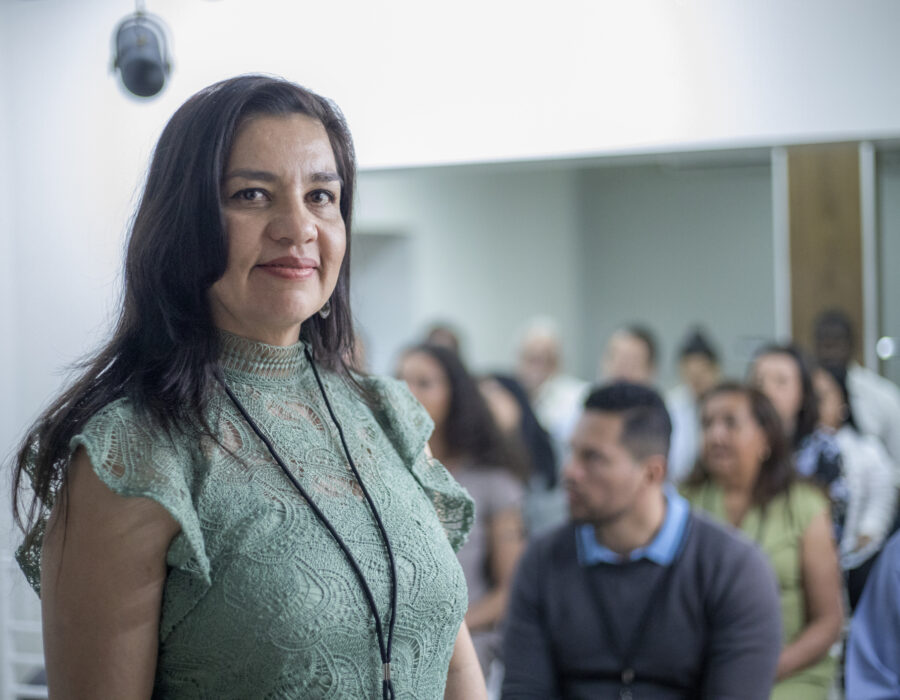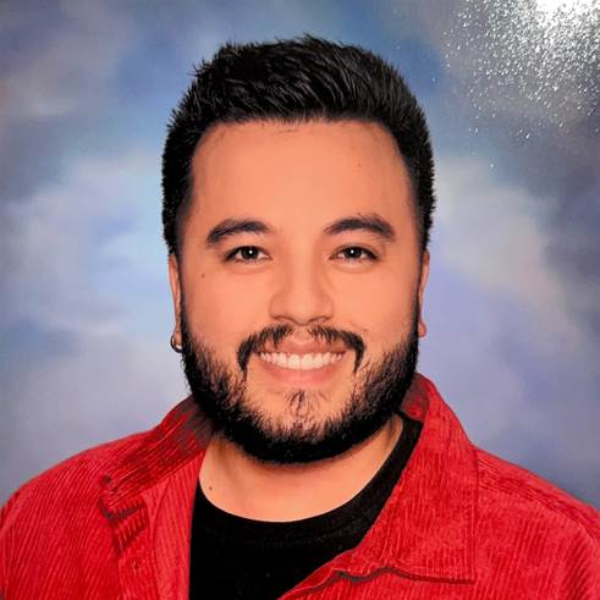Each concentration path includes four courses and a concentration-specific format for the dissertation in practice. A faculty member in your chosen concentration will provide guidance throughout your dissertation completion. Relevant career experience is a requirement for the concentration you select.
Doctor of Education in Educational Leadership (online)
Apply Now
Request More Information
Flexible
Transformative
Prestigious
Practical
Lead Change to Improve Outcomes for All Students
The Doctor of Education in Educational Leadership online (EDL online) program prepares you to be a critically conscious leader equipped with strategic thinking, evidence-based research skills, and the ability to create equity and foster continuous organizational improvement. The online program offers four concentrations: K-12 Leadership in Urban School Settings, Leading Instructional Change, Higher Education Administration, and Educational Psychology.
Regardless of concentration, you will:
- Earn a doctorate respected by employers in the field of education.
- Be able to maintain a full-time work schedule while taking two courses one night a week.
- Learn alongside a cohort of experienced educational professionals nationwide.
- Become equipped to address critical issues in historically marginalized communities and make a lasting impact.

Program Details
DEGREE AWARDED
Doctor of Education (EdD)
ESTIMATED LENGTH
3 Years
UNITS
43
PROGRAM COST
$2,354 per unit (estimated)
MODALITY
Online
NEXT DEADLINE
Regular Deadline: April 15, 2025
START DATE
August 25, 2025
CLASS TIMES
Prior to the dissertation phase, students are assigned to one evening of classes per week on Tuesday, Wednesday or Thursday from 5:00 to 9:50 p.m. in the Pacific Time Zone.
Core Curriculum
Online Concentrations
K-12 Leadership in Urban School Settings
The K-12 leadership concentration will prepare you to become a leader in classrooms, schools or school districts. The courses help develop an understanding of how to create high-performing schools that address the diverse needs of all students regardless of school setting. The course sequence culminates in either EDUC 720: Leadership for Principals or EDUC 721: Leadership for Superintendents, an integrated composite of effective leadership practices that result in more effective organizational outcomes, including increased student achievement.
Recommended career background for this concentration:
Teacher, administrator or education professional in PK-12 education at the local, state and federal levels.
Dissertation in practice: Study an existing problem of practice and complete a traditional five-chapter dissertation.
Career Outcomes: The K-12 leadership concentration prepares you for employment as an educational leader in the K-12 field. This includes school site leadership, district leadership and systems leadership. Roles include teacher leaders, district office leaders, superintendents and CEOs of independent schools and charter schools.
Alumni have held positions such as:
- Superintendent, Covina-Valley Unified School District
- Director of community partnerships, Long Beach Unified School District
- Chief innovation officer, National Catholic Educational Association (NCEA)
- Superintendent, Garden Grove Unified School District
Higher Education Administration
The higher education administration concentration focuses on administrative theory and best practices for leading higher education institutions. Courses in the concentration address policy, economic issues, assessment, student learning and the history and major philosophical assumptions that undergird the system of higher education.
Recommended career background for this concentration: Professional in higher education administration at a two- or four-year college or university (including student, academic and administrative affairs) or secondary and postsecondary college advising.
Dissertation in practice: Study an existing problem of practice and complete a traditional five-chapter dissertation.
Career outcomes: The higher education administration concentration prepares you for employment in senior administration in two- and four-year colleges, academic executive positions, key leadership roles in education-related organizations, and more.
Alumni have held positions such as:
- Associate dean of students and director, Stanford University
- Executive director, undergraduate advising and programs, School of Business, George Washington University
- Director of intercollegiate athletics, California State University, Northridge
- Vice president for student affairs and dean of students, University of Texas, Austin
Leading Instructional Change
The leading instructional change concentration focuses on theories, practices and policies supporting curriculum and instruction that foster equitable educational opportunities for students from historically marginalized groups in urban PK-12 and higher education settings. This concentration is designed for individuals interested in leading and teaching teachers (pre- and in-service) and faculty (higher ed) so that they are prepared to provide their students with high-quality instruction that is anti-racist, culturally relevant and LGBTQ+ inclusive.
Recommended career background for this concentration: Teacher or administrator in PK-12 or higher education, instructional leader or designer, curriculum developer or professional in non-traditional educational settings.
Dissertation in practice: Conduct action or participatory action research addressing the relationship between leadership and instructional improvement in PK-20 educational settings and complete a non-traditional written product (not a five-chapter dissertation) and public presentation.
Career outcomes: The leading instructional change program prepares you for positions such as university faculty member, professional development specialist, curriculum developer/administrator and more.
Alumni have held positions such as:
- Director, metrics and LCAP, Azusa Unified School District
- Director, student support and intervention, Antelope Valley Union High School District
- Senior director of teaching and learning, Los Angeles Education Partnership
Educational Psychology
The educational psychology concentration* focuses on research and practice in the areas of learning, motivation and development in diverse social contexts. Courses in the concentration explore how people learn, what motivates them, which instructional and motivational strategies are most effective within varied cultural systems and how the social context of instruction affects learning.
*The educational psychology concentration does not meet the requirements for licensure as an educational psychologist.
Recommended career background for this concentration: Professional in K-12, higher education, or counseling, special education, social services, instructional technology, non-profit organizations, or other non-traditional educational settings.
Dissertation in practice: Study an existing problem of practice and complete a five-chapter dissertation or design curriculum to address an existing problem of practice.
Career outcomes: The educational psychology concentration prepares you for employment in areas such as instructional design, human performance personnel, school/community counseling and more.
Alumni have held positions such as:
- Innovation program manager, Applied Materials
- Managing director, school performance accountability and research, California Charter Schools Association
- Dean of innovation, The Derryfield School
- Vice president of education, Fusion Education Group

Get Help Funding Your Degree
Applicants are automatically considered for merit-based scholarships of up to $10,000—there’s no need for a separate application. Scholarship availability may be limited and awarded on a first-come, first-served basis, so applying sooner rather than later is in your best interest. Recipients are selected based on academic achievement, commitment to the USC Rossier mission, and other factors. All scholarships are awarded upon admission.
Explore Scholarships
Advance Your Career Without Pausing It
With online courses typically held one evening per week, you can continue working full-time while pursuing your doctorate. Join us and learn firsthand why 95% of our alumni said their USC Rossier education prepared them to be more effective in their career.
Apply Now


